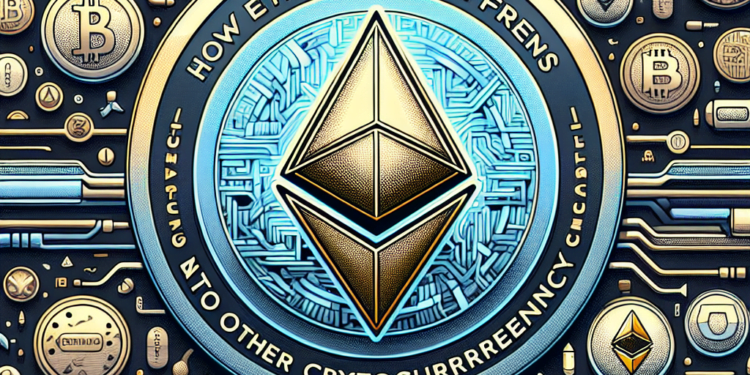Understanding the Uniqueness of Ethereum
Cryptocurrencies have exploded in popularity over the past decade, leading to a surge in cryptocurrencies being developed and offered to the public. With over 5000 cryptocurrencies currently in the market, each one tends to bring its unique value proposition. While Bitcoin often dominates discussions given its historic significance as the first cryptocurrency, Ethereum is another juggernaut in the crypto space that often draws attention. Ethereum represents a significant departure from Bitcoin and other cryptocurrencies in several ways.
1. More Than Just a Cryptocurrency
The first and most substantial difference between Ethereum and most other cryptocurrencies is its functionality. While Bitcoin and many other cryptocurrencies are primarily digital currencies, Ethereum is much more – it’s an open platform that uses blockchain technology to enable developers to build and deploy decentralized applications (DApps).
At the heart of Ethereum is its native cryptocurrency, Ether (ETH), but Ethereum’s appeal goes beyond ETH. It includes smart contracts, self-executing contracts with the terms of the agreement directly written into lines of code. These characteristics open up a whole array of possibilities that stretch beyond the financial uses cryptocurrencies are usually associated with.
2. Different Purpose & Vision
Bitcoin was developed as an alternative to traditional money, an online cash system that operates independently of any government or organization. On the other hand, Ethereum was not designed to replace money but to use blockchain technology’s powers to eliminate internet third parties. These include services that store your data, transfer mortgages, and even complex financial instruments.
3. Faster Block Time
Transactions on the Bitcoin network take 10 minutes to confirm, while the Ethereum network typically confirms transactions within seconds. This speed is due to the use of a different consensus mechanism. Bitcoin uses the ‘proof-of-work’ mechanism, while Ethereum currently uses a similar mechanism but has started transitioning to a ‘proof-of-stake’ mechanism.
4. Immutable Smart Contracts
The unique selling proposition of Ethereum is its ‘Smart contract’ functionality. Smart contracts are self-executing contracts that run when predefined conditions are met. Once a smart contract is deployed on the Ethereum network, it cannot be changed, resulting in unprecedented security and trust.
5. Ethereum’s Role in DeFi
Ethereum is the dominant platform for the exciting Decentralized Finance (DeFi) market. DeFi aims to recreate traditional financial systems (like lending and borrowing) with cryptocurrency at the heart, thanks to Ethereum’s smart contract capability. If you want to stay updated on trending news in the DeFi industry, be sure to check out DeFi Daily News.
Conclusion
While every cryptocurrency tends to have its unique and exciting features, Ethereum stands out from the rest because of the extensive functionality it offers via its platform. The use of the Ethereum platform for creating decentralized applications propels it beyond just being a cryptocurrency and into a whole different ball game. The potential applications for Ethereum’s technology could revolutionize many industries, making it a crypto to keep an eye on for the future.
Frequently Asked Questions (FAQs)
1. What purpose does Ethereum serve?
Ethereum serves as a platform for developers to build and deploy decentralized applications, bolstered by use-cases such as peer-to-peer contracts.
2. How does Ethereum differ from Bitcoin?
While Bitcoin is primarily a cryptocurrency, Ethereum goes beyond being just a cryptocurrency. It’s an open software platform that enables developers to build and deploy decentralized applications.
3. What are some applications of Ethereum?
Ethereum finds applications in areas requiring decentralized applications and smart contracts. This has made it a dominant player in the burgeoning world of DeFi.
4. What is Ethereum’s transaction speed?
Ethereum’s transactions are confirmed within seconds, significantly faster than Bitcoin, where a transaction takes about 10 minutes to confirm.


















